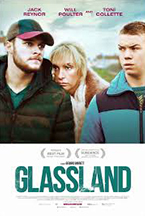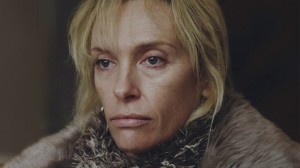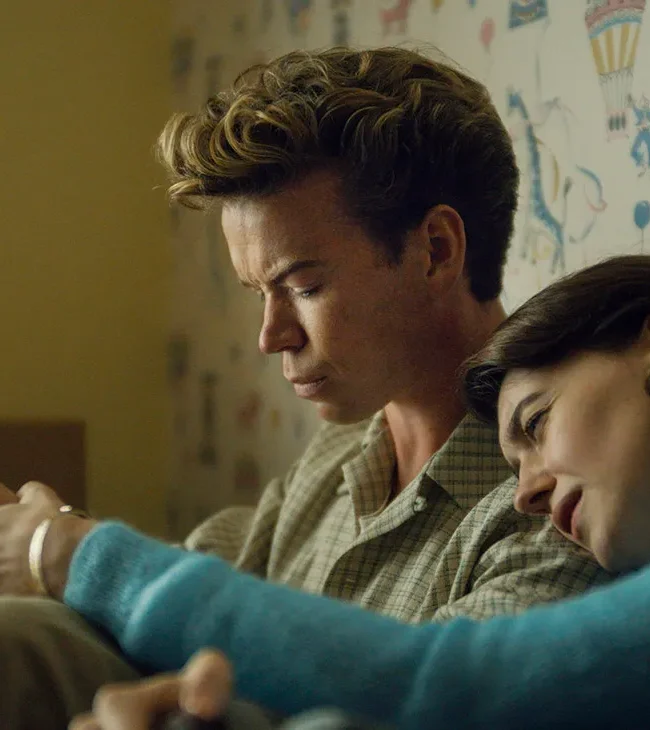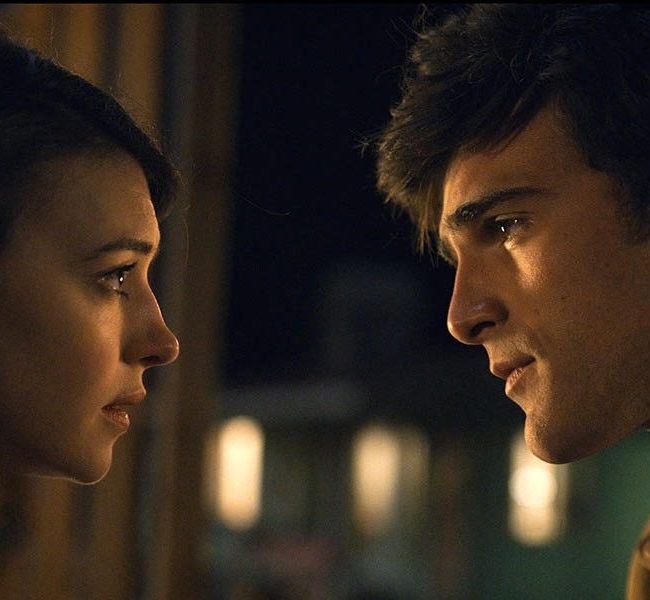GLASSLAND

(The 2015 Seattle International Film Festival started May 14 and runs all the way until June 7. Keep an eye on HtN for several reviews like this one, the latest from Irish filmmaker Gerard Barret).
Irish filmmaker, Gerard Barrett follows up his acclaimed first feature Pilgrim Hill with Glassland, another peek into the hardships of life in working-class Dublin. John (Jack Reynor, Transformers: Age of Extinction) is a young man struggling to hold his family together thanks to his mother, Jean’s (Toni Collette), full-blown alcoholism. She drinks like it’s her job and so it becomes John’s job to keep her alive and the family above water. He occasionally attempts to blow off steam in the company of his best friend, Shane (Will Poulter), who is going through some heavy stuff of his own regarding his estranged newborn son. Glassland is an incredibly bleak and intense 90 minutes that haunts you for days after. The lasting impression it leaves is especially remarkable considering the budget and time constraints under which Barrett worked.
Cinematographer Piers McGrail frequently utilizes a handheld camera but shoots from a fixed point away from the action, giving the viewer a fly-on-the-wall perspective of John’s constant turmoil. When he returns home after a night shift driving a cab, he finds Jean unconscious, marinating in bile. He carries her lifeless body out the door and into his car in a panicked, but frustrated manner, which suggests this isn’t his first time at the Alcohol Poisoning Rodeo. As he loads her into the car and pulls away, the camera stays inside the house. McGrail shoots interior car scenes from the back seat and other scenes from across the room. Due to a nearly complete lack of exposition, we are forced to piece together the story ourselves, and what we can make out is mortifying. These storytelling choices, along with the absence of a score, make it feel like the audience is privy to something that’s none of our business.
John tries everything he can to help Jean, short of forcing her into a program. He pleads with her, telling her how hard he’s working for her and how she’s broken his heart time and time again. When she returns home from the hospital, she tears apart the house looking for the booze that John has discarded. He takes a video of the incident to show her when she’s in a rare state of clear-headedness. At one point, he even concedes and drinks with her, in hopes that perhaps she’s just doing it because she’s lonely. Medical treatment and broken plates are expensive, so John eventually takes a shady side gig to make ends meet. Though the particulars of his criminal activity are never 100% clear, they raise the stakes that already seemed as high as could be. You may find yourself holding your breath through much of the film’s run time.
As painful as it is to watch, both Reynor and Collette give all-in performances that you want to see through. Collette’s portrayal of an alcoholic is as raw as they come. It’s tragic and ugly and comes closer than any film I’ve seen to representing alcoholism as a disease rather than a choice. The only exposition in the film comes in the form of a monologue from Jean, as she explains how she came to be this way and why she chose to abandon her youngest son, who has Down’s Syndrome, in a government facility.
Collette disappears inside Jean and somehow manages to make her sympathetic, which is sheer alchemy when you consider what her character puts her children through. I’ve read that the affected Irish accents by Collette and Poulter (Australian and English, respectively) are spot on. I can’t say that I’d have known the difference between what they were doing and the Lucky Charms leprechaun, but I know from other films that a noticeably false accent can detract from the story. There is very little in Glassland to remind you that you are watching a movie. This film is a must-see, though you may breathe a sigh of relief when it finally fades to black.
—Jessica Baxter (@TehBaxter)












